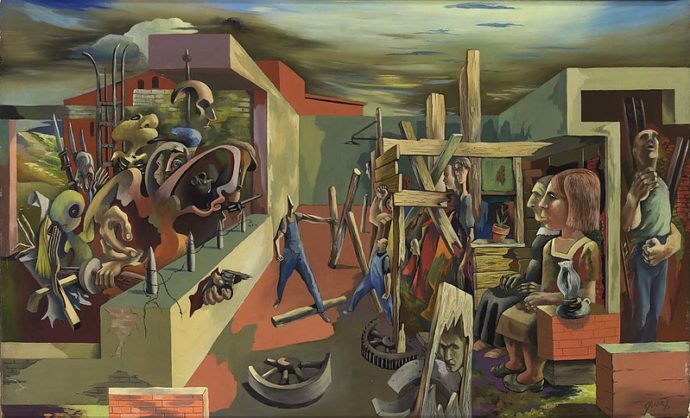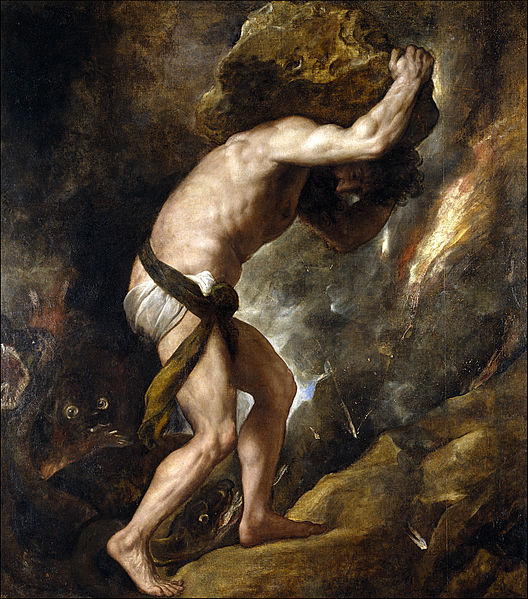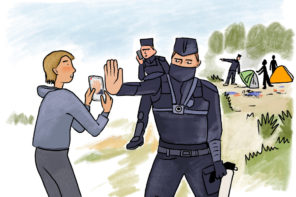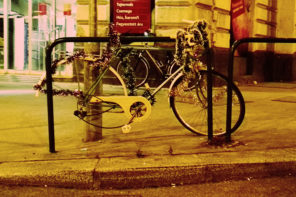Anthropology is often seen as the discipline that makes “the strange familiar and the familiar strange”. Here, however, we are staying with the strange in the form of people’s experiences and articulations of absurdity. This focus allows us to account for what it is like to live in a runaway world (Leach 1968), where the ethics and rules of the game seem absent or unintelligible (Durkheim 1951), and normative expectations of social life have been disappointed. In many of these instances, calling something absurd is a way to express the sense that things are out of kilter, generating bemusement while often blending despair and comedy. The experience of absurdity can take the form of momentary flashes of the perspective afforded by self-reflection (Vohnsen 2017), or a prolonged sense of an endemic condition. But anthropologists may also reflect on their own practice, asking if sometimes the will to empathise and explain might itself be absurd.
In many of these instances, calling something absurd is a way to express the sense that things are out of kilter, generating bemusement while often blending despair and comedy.
Ethnographic attention to the various forms of absurdity reveals relations and routines that people long for in their work and daily lives. By describing an experience as “absurd,” people often implicitly refer to a standard of seriousness and normality that their situation fails to meet (Nagel 1971, 718). Ridiculing irrational, disproportionate and paradoxical authority, for instance, can conjure up ideals of how governments or administrations should behave, as well as highlighting the senseless nature of political power, or moral considerations of what is right or wrong (Göpfert 2022; Klumbytė 2014). Indeed, labeling something as absurd often indicates disillusionment and a sense of injustice.
For instance, Stefano Pontiggia describes a migrant’s despair on being confronted with the Sisyphean bureaucratic circularity underpinning Italy’s migration regime. The migrant’s enduring wait is repetitive and tiring, continually returning him to the same point without ever resolving his status. The situation is absurd because his position is at once legal and illegal, and he can only meet bureaucratic demands by creating fake documents or seeking the help of acquaintances who masquerade as employers.
Charline Kopf shows how Senegalese railway workers use notions of “absurdity” to critique patronizingly inappropriate government propaganda on the moral and social discipline of cleaning public infrastructure. Such injunctions are woefully out of step with widespread unemployment that demands political attention. Homing in on the nation-wide Cleaning Day in a railway depot, she shows how the workers considered such tidying assignments useless and just a way to keep them occupied as their jobs were phased out.
A similar disjuncture appears in the case examined by Sarah Howard, in which a British NGO gave public health advice to Ethiopian mothers, which was irrelevant to local conditions and needs. By examining this absurdity through an ethnographic lens, as well as reflecting on her own experiences at “home”, Howard exposes the power and value hierarchies associated with women’s bodies and their breast-feeding practices.
As Deborah Jones vividly describes, war generates the most immediately violent dislocation of everyday sensemaking, as seen among Ukrainian refugees trying to re-settle in Germany. Examining daily life among her Ukrainian interlocutors amid the Donbas war (2014-2022), and during the ongoing Russian invasion, Jones shows how absurd circumstances arose from the disjuncture between what was and was not provided by state aid: buckwheat without cooking pots or ovens.
Experiencing absurdity can be frustrating and frightening. However, absurdity can often mesh fear and fun, terror and comedy—sometimes through subversive humor (see also Boyer and Yurchak 2010; Molé 2013, Boyer 2013). Laughing together at absurd jokes can also allow marginalized groups to regain a sense of agency and control when they are confronted with unintelligible politics. Ståle Wig describes a genre of ridiculous political statements from authoritarian leaders in Cuba, Russia, and the United States, which trigger a flurry of memes and jokes, letting marginalized groups feel they have the last word in the face of senseless displays of power.
Yet, absurdity can easily shift from ambiguous comedy to outright tragedy. Examining absurdity via performative acts of denial from political leaders in Egypt, Karin Ahlberg argues that absurdity is common in authoritarian regime settings where truth and transparency are disconnected from political life. While Ahlberg shows how denial can be a rather ordinary act, she argues that denials become absurd when they are scaled up and used by authorities. In Egypt, denials of publicly known actions contribute to an atmosphere of uncertainty, deepening people’s sense of living in a polity that defies explanation.The ordinariness of absurdity also comes to the fore in Mirko Pasquini’s piece. Here it is part of his interlocutors’ everyday jobs. Pasquini shows how, even in an emergency ward’s heightened atmosphere, staff are attuned to what he calls the sound of absurdity: listening for signals that a patient might fly into a rage, for no apparent reason, unless countered by pragmatic adaptations of conventional medical care.
As Albert Camus wrote: “At any street corner, the feeling of absurdity can strike any person in the face” (2013 [1942], 13). Anthropologists are not exempt. Ethnographic fieldwork often creates absurd experiences for researchers. Through his ethnography of urban Malaysia, Asmus Rungby argues that anthropologists must sometimes resist the urge to explain away inexplicable instances they come across, instead accepting that they may just not make sense.
Meanwhile, drawing on his fieldwork in the Indian mountain plateau of Ladakh, where spirit encounters are commonplace, Callum Pearce describes his attempts to search for ghosts in the night, demonstrating how the impulse to experience what others sense or describe may lead to behaviours that feel absurd to the ethnographer. Both texts grapple with a classic question within the discipline: how much can we truly understand about another person’s thoughts and feelings?
Focusing on the absurd when ordinary life no longer makes sense helps us understand precisely what those expectations of meaningful work and lives are.
Together, these essays reflect upon how people carry on with their lives and work amidst experiences that challenge familiar logics and moral orders, whether migrants, hospital staff, or citizens confronted with ridiculous or irrelevant politics. Focusing on the absurd when ordinary life no longer makes sense helps us understand precisely what those expectations of meaningful work and lives are. At the same time, to study absurdity raises questions about the limits of ethnographic empathy and explanation.
Absurdity can produce terror and confusion as well as comedy and clarity in the face of senseless politics. Whether people deal with the absurd through humor, critique or existential despair, these are deeply human responses to the shared predicament of living in a world that does not always make sense.
References
Boyer, D. 2013. “Simply the Best: Parody and Political Sincerity on Iceland”. American Ethnologist, 40(2): 276-287.
Boyer, D. and A. Yurchak. 2010. “American Stiob: Or, What Late-Socialist Aesthetics of Parody Reveal about Contemporary Political Culture in the West”. Cultural Anthropology, 25(2): 179-221.
Camus, A. 2013 [1942]. The Myth of Sisyphus. Penguin UK.
Durkheim, E. 1951. Suicide: A Sociological Study. New York: The Free Press.
Göpfert, M. 2022. “On dictators and clowns”, Anthropology Today, 38(3), pp. 22–24.
Klumbytė, N. 2014. “Of power and laughter: Carnivalesque politics and moral citizenship in Lithuania”, American Ethnologist 41(3): 473-490.
Leach, E. 1968. A Runaway World? BBC Books.
Molé, Noelle J. 2013. “Trusted puppets, tarnished politicians: Humor and cynicism in
Berlusconi’s Italy”. American Ethnologist. Vol. 40(2), pp. 288–299
Nagel, T. 1971. “The absurd”. The Journal of Philosophy. 68.20: 716-727.
Vohnsen, N. 2017. The Absurdity of Bureaucracy: How Implementation Works. Manchester University Press.
Featured image: Conflict [1935] by Walter Quirt, courtesy of the Smithsonian American Art Museum












